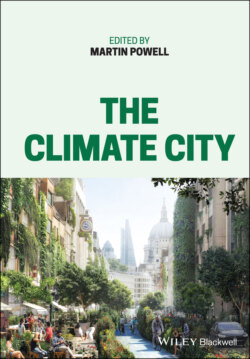Читать книгу The Climate City - Группа авторов - Страница 47
Eco-cities Dongtan, Shanghai
ОглавлениеIn 2005, the Shanghai Industrial Investment Corporation (SIIC) hired Arup, a design, engineering, and business consultancy firm, to design and plan a city that could bring increased sustainability to a region suffering with overcrowding and pollution. The result was Dongtan eco-city. Dongtan was conceived as a futuristic model for low-rise suburbs, accommodating spillover from the big cities and China’s growing middle class. It was to be a carbon neutral and zero waste city, with a myriad of renewable energy systems; it would ban cars, recycle water, and surround itself with organic farms and forests.32
It failed for a number of reasons:
The project stalled in 2006 after key officials, most significantly Shanghai’s top bureaucrat Chen Liangyu, were arrested for bribery and fraudulent real-estate transactions and given long prison sentences.
Dongtan’s planners failed to comply with government land-use policy.
Built on Chongming Island in the Yangtze delta, many of the people originally living there were displaced, calling into question ethical standards.
During this time, Chongming county officials were able to outpace the SIIC and proceeded to confiscate farmland, relocate peasants, and invest in infrastructure.
In her book Fantasy Islands 33 Julie Sze, whose father hails from Chongming Island, argues that Dongtan failed due to not just corrupt officials but also the failure to take into account how “technology, engineering and politics are intimately woven together”.34 According to Sze, ambitious green projects, engineered “ectopia”, have become symbols of technological excess that have overshadowed smaller more effective steps that can sustain environmental improvements.35
To succeed, it is clear that these ambitious projects cannot be sustained by political structures alone but require individual citizens who must themselves be part of the plans. This may also teach us the desire for incremental change as a means of grasping new realities more easily rather than radical new approaches that make people who have to accept the change nervous.
